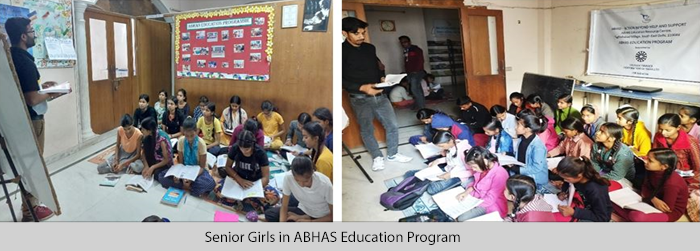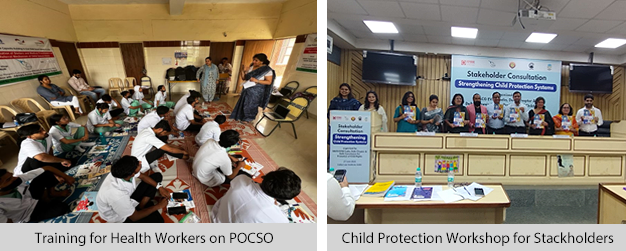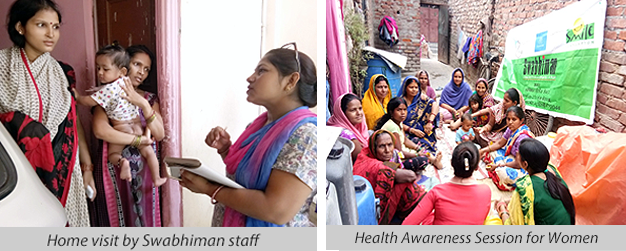ABHAS Programs
ABHAS designs and implements innovative education and health programs using a rights-based approach. ABHAS programs aim at building capacities of children and adolescents especially girls and empowering them to become change agents to promote education in their communities. Close contact with children and their families is ensured through social workers, teachers and outreach workers.
Since inception, we have implemented 16 programs aimed at promoting education and best health practices among indigent communities. These Programs covered more than 30,000 deprived urban children, especially girls residing in urban villages and adjoining slum settlements in Delhi and NOIDA. ABHAS recognizes that understanding and resolving problems of children is the key to ensuring their retention and prolonged stay in school. ABHAS acts as a community resource and plays the important role of an observer and mentor providing a safety net for its constituents.
ABHAS Education Programs
The ABHAS Education Programs provide educational support to children through a multi-grade multi-level teaching strategy to improve learning levels of the enrolled children. These Programs focus on developing reading, writing, speaking and numerical skills especially in the early grades. ABHAS designed Learning Assessment Tests are conducted at appropriate intervals to assess the children and bring them to their relative age grade level.

Our flagship Program, the ABHAS Education Program, started in 2014, caters to the education needs of children especially girls and helps them to join mainstream schools, continue to stay in school and complete school education. The ABHAS Education Program, provides vulnerable children age-appropriate academic support, life skills training and socio-emotional counselling to enable them to cope with the school curriculum and continue schooling. Currently, the Program is supported individuals and CSR donors. Training on Life skills, sports and Yoga is also imparted to children. The Program actively promotes sports. Selected children are trained by the Ultimate Frisbee Foundation and take part in Frisbee Tournaments organized by them.
All children associated with ABHAS show higher retention in school and improved academic performance with more than 85% continuing schooling and even completing Class XII. In fact, in recent years, > 500 ABHAS children have completed their CBSE XII and are pursuing tertiary education either in college or in vocational institutes.
ABHAS Advocacy Initiatives
From March 2020, ABHAS, among others, partnered with NACG EVAC to implement a 3-year Project “Child Protection Workforce Capacity Building to End Child Sexual Abuse in India”. The Program was implemented in 30 Wards of 4 Districts of Delhi by 4 partner NGOs including ABHAS. The program has helped to bring the issue of CSAE to the forefront and equip a generation of children and young adults with information, know-how, and the language to speak up against and prevent child sexual abuse using community-based awareness programs, like nukkad nataks, rallies, and formation of community-based Child Protection committees on prevention of child sexual abuse.

ABHAS Health Programs
Apart from Education Programs, ABHAS has developed capacities to implement Community Health Programs. The success of ABHAS’s Healthcare and Women’s Empowerment Program – Swabhiman, launched in 2018 is noteworthy. The Program enabled marginalized and socially excluded women and adolescent girls to build their self-esteem and lead a life of dignity. With enhanced health seeking behaviour, these young girls now can function as change agents promoting good reproductive and sexual health behaviour among their peers and young women.
The program reached out to more than 10,000 women and men through awareness sessions, group meetings, IEC / BCC activities, celebration of important days, Workshops with health experts, social marketing of sanitary napkins and contraceptives and Health check-up camps.
A Community Resource Centre was set up under the Program to help community adolescent girls and women get information about RCH, ARSH/RSH, labour/workplace legislation and employment opportunities express grievances and receive counselling support. Home visits to track ANC and PNC cases, promotion of institutional deliveries and referrals of difficult case was an integral part of the Program.

